
Faculty Panel Q&A: Part 2 - 2021
-
Register
- Non-Member - $39
- Regular Member - $29
- Retired - $29
- Early Career Physician - $29
- Resident - $19
- Student - $19
- Associate - $19
- ASAM Staff - Free!
- International Member - $29
- Emeritus Member - $29
- Provisional Member - $29
- Fellow Member - $29
- Honorary Member - $29
- CRT Member - $29
Faculty Panel Q&A: Part 2
Recorded: Thursday, July 22, 2021 - Saturday, July 24, 2021
On-Demand Session
Overview
This 45-minute, on-demand session from the ASAM 2021 Review Course provides answers to the top questions asked during Faculty presentations covering Epidemiology, Ethics and the Law, Psychiatric Co-Morbidities, and Prevention and Public Health.
This panel session will provide a prime opportunity for learners to get their questions answered on topics that were presented on day two of the ASAM Review Course.
Session Topics Being Discussed:
-Epidemiology: Core Concepts and Applications
-Ethics and the Law: Principles and Treatment Implications
-Psychiatric Co-Morbidities: Assessment and Treatment
-Prevention and Public Health: Principles and Applications
The target audience for this introductory and intermediate level activity includes: Physicians preparing for the ABPM or AOA Board Certification Examination in addiction medicine, nurse practitioners, physician assistants, other clinicians, researchers, residents, fellows, students, and counselors.
This activity addresses the following ACGME Competencies: Patient Care, Medical Knowledge, Interpersonal and Communication Skills, and Practice-Based Learning and Improvement
Learning Objectives
Upon completion, learners will be able to:
- Demonstrate practical knowledge on the neurobiology of addiction and articulate its activity in terms useful in a clinical setting
- Describe the effects of alcohol, tobacco and other drugs in both tolerant and non-tolerant individuals
- Describe the process for diagnosing addiction and differentiating the symptoms of addiction from those of other medical or psychiatric disorders
- Explain the various pharmacologic and psychosocial treatments for addictive disorders and describe the factors that should be considered in selecting a treatment modality to match the needs of a specific patient
- Describe the precipitants of relapse and current evidence-based practices to prevent and manage relapse
Registration Rates
| ASAM Learner Type | Rate |
| ASAM Member | $29 |
| Non-Member | $39 |
| Associate Member | $19 |
| Resident Member* | $19 |
| Student Member* | $19 |
*Residents, Fellows-in-training, Interns, and Students must join ASAM to receive a discounted registration rate. Click here to become an ASAM member. National and Chapter membership dues apply. There is no charge for Students to become a Member, but verification of student status is required.
Membership Question? Call ASAM at 1.301.656.3920, email us, or view the ASAM website for more information.
Refunds & Cancellations
All ASAM e-Learning Center refund requests must be made in writing to Education@ASAM.org within 90 days of purchase. Those requesting refunds for courses that are in progress will receive partial refunds or e-Learning Center credit. Automatic full refunds will be made for any course with a live-course component that has been cancelled.
Registration Deadline: 08/09/2024
Instructions
- Click on the Contents tab to begin this activity.
- Click Complete Post Test to answer multiple choice questions. Participants will have 10 attempts to pass and must answer 2 out of 3 questions correctly.
- Click Complete Evaluation to provide valuable activity feedback. Scroll down on all questions as there may be answer options that expand past the size of the window.
- Click the button Claim Medical Credits in the box titled Claim Credits & Certificate. Choose the type of credit and click submit. Click the button View/Print Certificate to save or print your certificate. You can view/print your certificate at any time by visiting the ASAM e-Learning Center, clicking Dashboard, and clicking Transcript/Achievements.
Need Assistance?
For assistance logging in, accessing activities, claiming credit, or for other questions or concerns, please check the FAQ page or e-mail Education@ASAM.org
ASAM is proud to offer eSSENTIAL Accessibility to ensure our website is accessible and functional for all our learners while providing free assistive technology for people with the widest possible range of abilities.
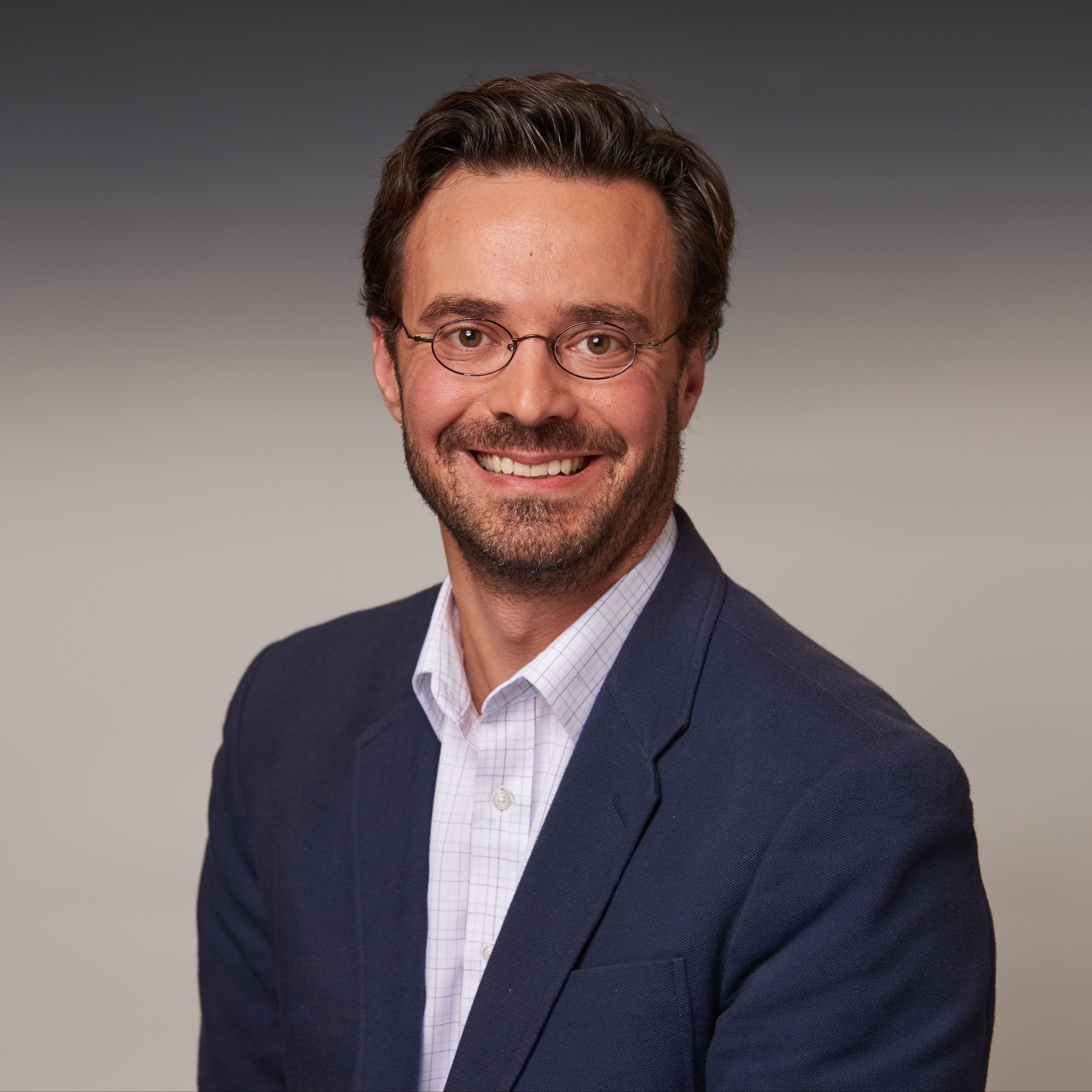
Jeffery DeVido
MD, MTS, FASAM
Chief, Addiction Services//Behavioral Health Clinical Director Marin County CA Dept of HHS//Partnership HealthPlan of CA UCSF
Jeffrey DeVido, MD, MTS, FASAM is board certified in General Psychiatry, Addiction Psychiatry, and Addiction Medicine and works in Northern California. Upon completion of residency and fellowship training at Massachusetts General and McLean Hospitals/Partners Healthcare, he attended on the psychiatric consultation-liaison services at UCSF, Parnassus Campus for 3 years. For the past 4 years, Dr. DeVido has been Chief of Addiction Services with Marin County CA Department of Health and Human Services and Behavioral Health Clinical Director with Partnership HealthPlan of CA. In both of these roles, he is involved in managing the development of substance use and co-occurring services for Medicaid beneficiaries in 14 counties between the Oregon border and San Francisco. In his free time, he enjoys fly fishing, chasing around his 3 young kids, and Star Trek.
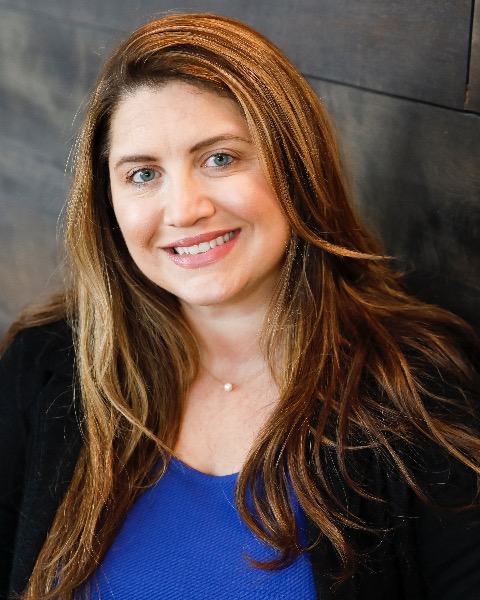
Jacqueline Landess
MD, JD
Jacqueline Landess, MD, JD is a forensic psychiatrist at the Mendota Mental Health Institute in Madison, Wisconsin, as well as the associate training director of the forensic psychiatry fellowship at the Medical College of Wisconsin. Dr. Landess also is affiliated with Monarch Recovery Clinics, where she treats individuals with co-occuring addictions and psychiatric illness. She obtained her medical degree from Vanderbilt University and law degree from Indiana University. Dr. Landess then completed her general psychiatry training at Northwestern University followed by a year of child psychiatry fellowship then forensic psychiatry fellowship at the University of Colorado. Before moving to Wisconsin, Dr. Landess worked at St. Louis University as an assistant professor of psychiatry and served as Director of Medical Student Education for the department of psychiatry. While in St. Louis, she also worked at the county jail as Chief of Mental Health Services and served as a consultant to the county's first felony mental health court. Dr. Landess has presented and published on a range of topics related to psychiatry, medicine, and the law. Her research and academic interests center upon correctional psychiatry, child forensic psychiatry, constitutional law, civil commitment, ethics, continuing education of legal professionals regarding mental illness, and treatment of complex, co-occuring psychiatric disorders such as treatment-resistant mood or psychotic disorders complicated by substance use.
Dr. Landess is involved with a number of professional organizations, serving on committees within the Wisconsin Psychiatric Association, the American Academy of Psychiatry and the Law, and serves as the co-chair of the Committee on Psychiatry and the Law within the Group for Advancement of Psychiatry (GAP). She is also a board member of Restoring Roots, a non-profit organization focused on long-term recovery housing and therapeutic communities for individuals with addiction.
Disclosures - None
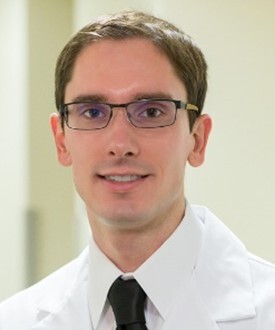
Brian Holoyda
MD, MPH, MBA
Brian James Holoyda, MD, MPH, MBA is a forensic psychiatrist. He completed his psychiatry residency and forensic psychiatry fellowship at the University of California, Davis Medical Center. Clinically, Dr. Holoyda specializes in treating patients in correctional settings. He currently provides clinical services to the inmates at a jail in the Bay Area of California. His forensic practice focuses on the assessment and management of sexual offenders. He conducts evaluations of sexual offenders regarding such issues as competency to stand trial, criminal responsibility, violence risk assessment, and civil commitment. Dr. Holoyda's research interests include paraphilic disorders, group beliefs and behavior, and psychedelics as novel psychotherapeutics.
Disclosures - None
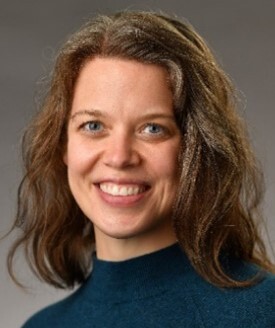
Kelly Kleinert
MD
Kelly Kleinert, MD is an Assistant Clinical Professor of Psychiatry at Columbia University Vagelos College of Physicians and Surgeons, board-certified in Psychiatry and Addiction Medicine. She is Associate Unit Director on 4 South, the inpatient unit of the Washington Heights Community Service at New York State Psychiatric Institute, where she works with patients with severe mental illness and often concomitant substance use disorders. Previously, she worked at Janian Medical Care, a nonprofit psychiatric and primary medical care organization in New York City, caring for individuals with co-occurring psychiatric and substance use disorders on a homeless outreach team and on an Assertive Community Treatment (ACT) team. Dr. Kleinert graduated from Columbia University Vagelos College of Physician and Surgeons and completed residency in General Psychiatry at New York University/Bellevue Hospital. Following residency, she returned to Columbia to complete a fellowship in Public Psychiatry.
No Relevant Financial Disclosures
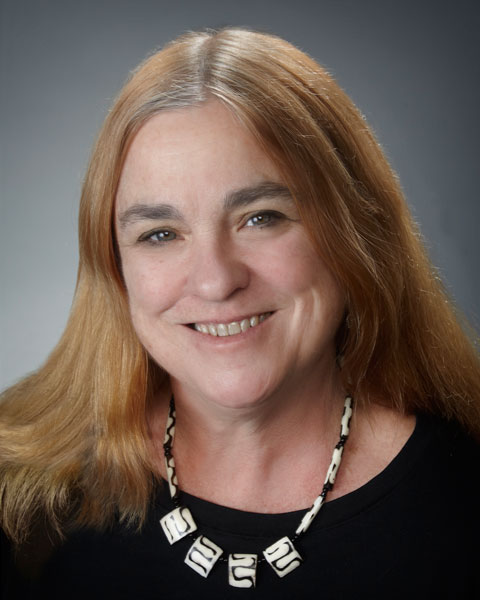
Sharon Stancliff
MD, FASAM
Sharon Stancliff, MD is Associate Medical Director for Harm Reduction in Health Care at the AIDS Institute, New York State Department of Health and she is a staff physician at Project Renewal where she prescribes buprenorphine an FQHC in a men’s shelter. Dr. Stancliff has been working with people who use drugs since 1990 including provision of primary care, drug treatment, HIV care and syringe access. She has been the Medical Director of a Community Health Center, an Opioid Treatment Program and the Harm Reduction Coalition. Her current focus is on opioid overdose prevention through expanding access to buprenorphine in primary care and in less traditional settings such as syringe access programs as well as expanding access to naloxone. She has spoken and provided technical assistance these topics nationally and internationally as well as publishing in books and peer reviewed journal. She is an active member of the American Society of Addiction Medicine. She maintains board certification in Family Medicine, and in Addiction Medicine.
Disclosures - None
No relevant financial relationships
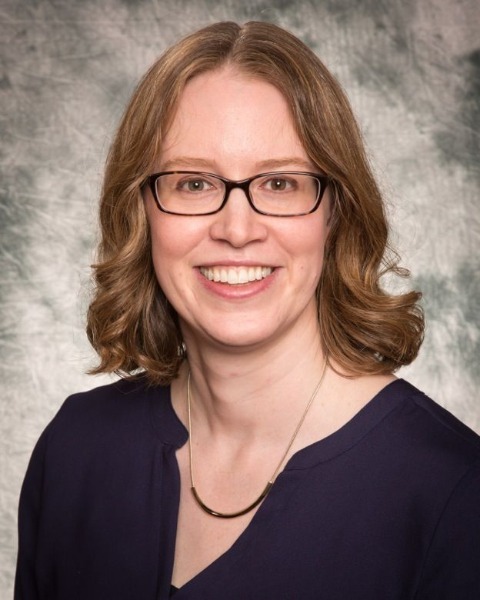
Erin A. Zerbo (Moderator)
MD, FASAM
Erin Zerbo, MD, received her B.S. in Brain and Cognitive Sciences from the Massachusetts Institute of Technology in 2003, and her M.D. from New York University School of Medicine in 2007. She remained at NYU for a general psychiatry residency and a one-year addiction psychiatry fellowship, graduating in 2012. Since 2014, she has been an Assistant Professor in the Department of Psychiatry at Rutgers New Jersey Medical School and the Associate Director of Medical Student Education in Psychiatry. In addition to managing a large buprenorphine practice dedicated to Newark residents, she is also the director of the Northern New Jersey Center of Excellence in Medication-Assisted Treatment, a new statewide opioid training and education initiative. Dr. Zerbo serves as the co-Chair of the Council on Education of the New Jersey Psychiatric Association, and she has published and lectured extensively in the field of addiction. Her primary interest is the treatment of substance use disorders in underserved and disadvantaged populations. She is a co-editor of the book "Pocket Guide to Addiction Assessment and Treatment" (APA, 2106), and the lead editor of "Becoming Mindful: Integrating Mindfulness into Your Psychiatric Practice" (APA, 2017).
Disclosures - None

CME, CE, CEU and Other Credit Types
ACCME Accreditation Statement
The American Society of Addiction Medicine is accredited by the Accreditation Council for Continuing Medical Education (ACCME) to provide continuing medical education for physicians.
AMA Credit Designation
The American Society of Addiction Medicine designates this enduring activity for a maximum of 0.75 AMA PRA Category 1 Credits™. Physicians should claim only the credit commensurate with the extent of their participation in the activity.
AMA/AAFP Equivalency
AAFP Prescribed credit is accepted by the American Medical Association as equivalent to AMA PRA Category 1 credit(s)™ toward the AMA Physician’s Recognition Award. When applying for the AMA PRA, Prescribed credit earned must be reported as Prescribed, not as Category 1.
NAADAC, the Association for Addiction Professionals
This activity has been approved by the American Society of Addiction Medicine, as a NAADAC Approved Education Provider, for educational credits. NAADAC Provider #295, ASAM is responsible for all aspects of the programming.
California Association for Drug/Alcohol Educators (CAADE)
This educational program is approved by CAADE: #CP40 999 1222.
California Association of DUI Treatment Centers (CADTP)
This educational program is approved by CADTP: #205.
California Consortium of Addiction Programs and Professionals (CCAPP)
This educational program is approved by CCAPP: #OS-20-330-1222.
Continuing Education Credits (CEUs)
Non-physician participants will receive a certificate of attendance upon completion of the activity and an online evaluation confirming their participation. Participants should submit their certificate of attendance to their professional organization/institute.
Maintenance of Certification (MOC) or Continuing Certification Programs (CCP)
American Board of Medical Specialties MOC Approval Statement
Through the American Board of Medical Specialties (“ABMS”) ongoing commitment to increase access to practice relevant Continuing Certification Activities through the ABMS Continuing Certification Directory, The ASAM Virtual Review Course in Addiction Medicine has met the requirements as a MOC Part II CME Activity (apply toward general CME requirement) for the following ABMS Member Boards: Allergy and Immunology, Anesthesiology, Colon and Rectal Surgery, Family Medicine, Medical Genetics and Genomics, Nuclear Medicine, Physical Medicine and Rehabilitation, Plastic Surgery, Preventive Medicine, Psychiatry and Neurology, Radiology, Thoracic Surgery, Urology.
American Board of Preventive Medicine (ABPM)
The American Board of Preventive Medicine (ABPM) has approved this activity for a maximum of 0.75 LLSA credits towards ABPM MOC Part II requirements.
American Board of Anesthesiology (ABA)
This activity contributes to the CME component of the American Board of Anesthesiology’s redesigned Maintenance of Certification in Anesthesiology TM (MOCA®) program, known as MOCA 2.0®.
American Board of Pediatrics (ABP)
Successful completion of this CME activity, which includes participation in the activity, with individual assessments of the participant and feedback to the participant, enables the participant to earn a maximum of 0.75 MOC points in the American Board of Pediatrics’ (ABP) Maintenance of Certification (MOC) program. It is the CME activity provider’s responsibility to submit participant completion information to ACCME for the purpose of granting ABP MOC credit.
American Board of Internal Medicine (ABIM)
Successful completion of this CME activity, which includes participation in the evaluation component, enables the participant to earn up to 0.75 Medical Knowledge MOC points in the American Board of Internal Medicine’s (ABIM) Maintenance of Certification (MOC) program. Participants will earn MOC points equivalent to the amount of CME credits claimed for the activity. It is the CME activity provider’s responsibility to submit participant completion information to ACCME for the purpose of granting ABIM MOC credits.
American Board of Surgery (ABS)
Successful completion of this CME activity, which includes participation in the evaluation component, enables the learner to earn credit toward the CME and/or Self-Assessment requirements of the American Board of Surgery’s Continuous Certification program. It is the CME activity provider's responsibility to submit learner completion information to ACCME for the purpose of granting ABS credit.
American Board of Psychiatry and Neurology (ABPN)
Successful completion of this CME activity can be used to satisfy the American Board of Psychiatry and Neurology’s (ABPN) CME requirement for Maintenance of Certification program.
American Board of Addiction Medicine (ABAM)
Successful completion of this activity can be used to satisfy the American Board of Addiction Medicine (ABAM) for Tmoc as credits towards ABAM LLSA Part II requirements.
Royal College of Physicians and Surgeons of Canada (RCPSC)
Royal College Fellows can use participation in Accredited Continuing Medical Education to earn Section 3 Credits.
CME Committee, Program Planning Committee, and Faculty Disclosure Information
In accordance with disclosure policies of ASAM and the ACCME, the effort is made to ensure balance, independence, objectivity, and scientific rigor in all CME activities. These policies include mitigating all possible relevant financial relationships with ineligible companies for the Planning Committees, CME Committee, MEC, and Faculty. All activity Planning Committee members and Faculty have disclosed relevant financial relationship information. The ASAM CME Committee has reviewed these disclosures and determined that the relationships are not inappropriate in the context of their respective presentations and are not inconsistent with the educational goals and integrity of the activity.

